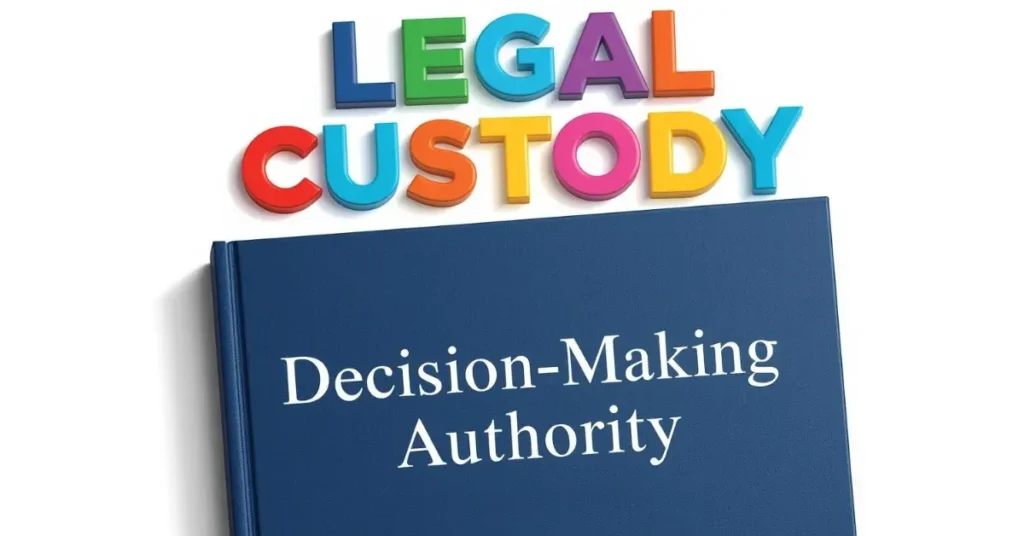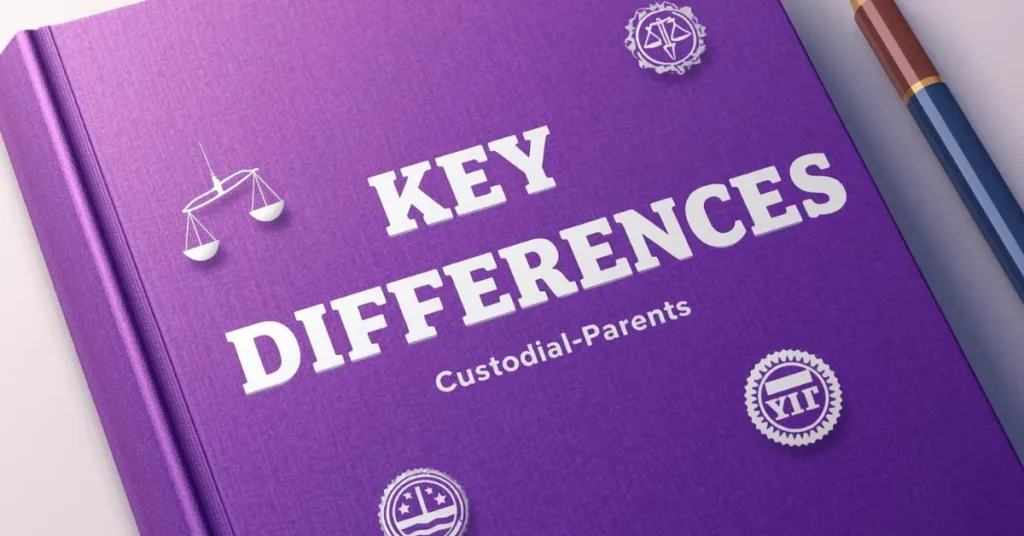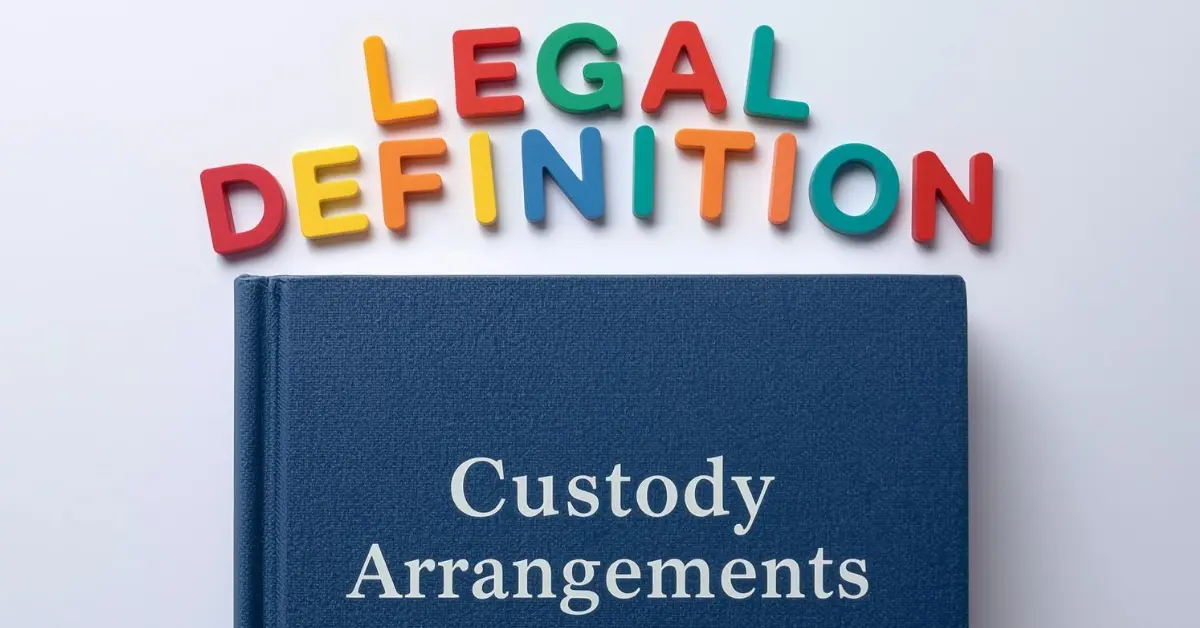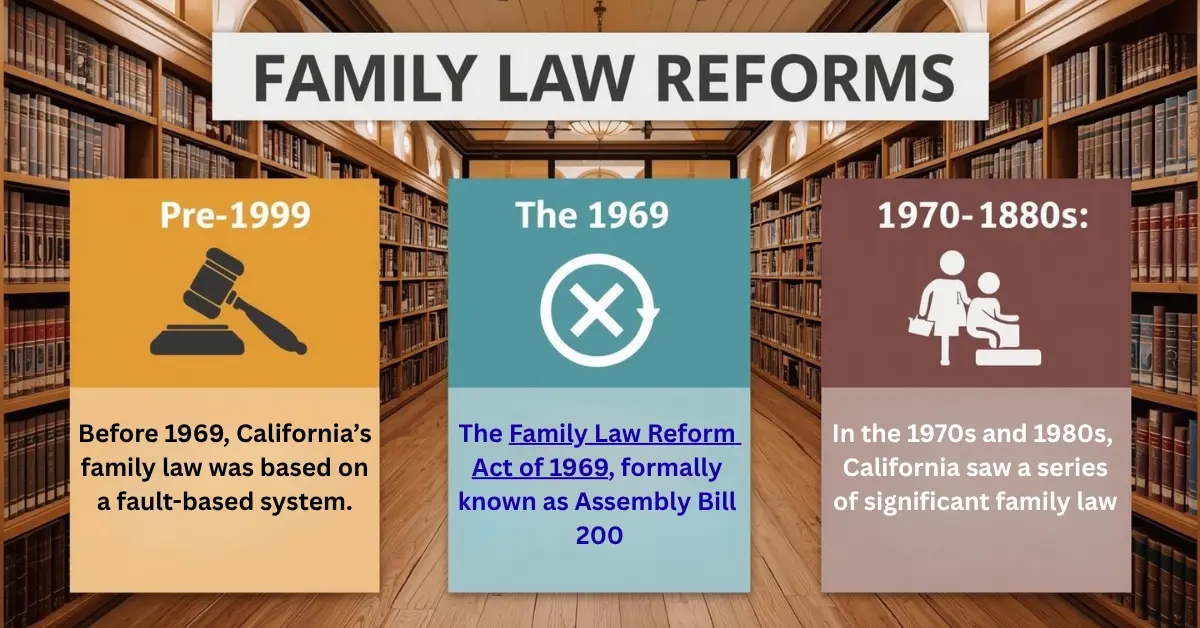In family law, understanding the differences between custodial and non-custodial parents is vital for navigating the complexities of child custody. These distinctions are not only based on physical and legal custody but also determine financial responsibilities and the authority over decision-making for a child.
Usually, the parent with main physical custody is also the one who makes most of the decisions regarding the child’s day-to-day life, and this parent is known as the custodial parent.
In contrast, the non-custodial parent, while often still having legal rights to make significant decisions, does not have primary physical custody and usually has visitation or shared custody rights.
The purpose of this article is to explain the differences in legal rights, responsibilities, and obligations that arise from these custody arrangements. This will help parents understand their roles and responsibilities better, especially in cases of divorce, separation, or other legal proceedings.
Legal Definition and Custody Arrangements
Custodial Parent: Legal Definition
The term custodial parent denotes the parent who possesses primary physical custody of the child. This parent provides the daily care and decisions that directly affect the child’s welfare.
Under Family Code § 3020, custody is always determined based on the best interests of the child, prioritizing stability, care, and protection. A custody order typically outlines the child’s living arrangements and the parent with whom the child resides.
Non-Custodial Parent: Legal Definition
The non-custodial parent is the individual who lacks primary physical custody but may retain legal custody or visitation rights. While they are often involved in important decisions regarding their child’s well-being, their parenting time may be limited compared to the custodial parent.
Family Code § 3100 governs visitation rights, and Family Code § 3080 provides guidelines for custody arrangements in cases of shared physical custody.
Legal Rights of the Custodial Parent
Physical Custody and Day-to-Day Decisions
The custodial parent is responsible for the child’s day-to-day decisions, such as health care, education, and extracurricular activities.
For instance, if a child needs medical attention or is involved in a school event, it is the custodial parent who typically makes these decisions unless the non-custodial parent shares legal custody.
This authority is granted under Family Code § 3003, which outlines the custodial parent’s right to make decisions about the child’s welfare.
Child Support Responsibilities
The custodial parent also carries the responsibility of providing the child with a stable home environment and financial support. This includes managing any child support received from the non-custodial parent.
Family Code § 4050 et seq. governs the guidelines for determining child support obligations. The custodial parent typically receives child support payments, which are intended to help with the child’s living expenses, education, and medical care.

Decision-Making Authority (Legal Custody)
In cases where the custodial parent has sole legal custody, they hold the authority to make significant decisions regarding the child’s future, including decisions about education, health care, and religion.
However, if both parents share legal custody, then both have an equal say in these decisions, regardless of who has physical custody.
Legal Rights of the Non-Custodial Parent
Visitation and Parenting Time
Although the non-custodial parent does not have primary physical custody, they retain important visitation rights. Visitation can be arranged on a set schedule or may be supervised, depending on the circumstances.
Family Code § 3100 outlines the non-custodial parent’s parenting time, which ensures the child maintains a relationship with both parents, even if the child primarily lives with one parent.
Legal Custody and Decision-Making Authority
The non-custodial parent may still retain joint legal custody, meaning they share decision-making authority with the custodial parent on significant matters like education, healthcare, and religion.
Family Code Section 3003 permits the court to award joint legal custody, thereby guaranteeing both parents participate in the child’s life.
Financial Obligations and Child Support
The non-custodial parent often provides child support to address the child’s financial needs. The amount of child support is determined according to Family Code § 4050 et seq., which takes into account the income of both parents and the needs of the child.
The non-custodial parent is legally obligated to make these payments, ensuring that the child receives financial support from both parents.
Enforcement of Visitation and Custody Orders
If the custodial parent does not comply with the custody or visitation orders, the non-custodial parent can seek enforcement through the courts.
Family Code § 17400 outlines enforcement mechanisms for child support and visitation orders, including wage garnishment or other legal actions to ensure compliance with the meaning of custody orders and the custody agreement.

Key Differences Between Custodial and Non-Custodial Parents
Primary Custody vs. Visitation Rights
The fundamental difference between custodial and non-custodial parents lies in primary physical custody versus visitation rights. The custodial parent is responsible for the child’s daily care, while the non-custodial parent may have scheduled visitation or shared custody.
Decision-Making vs. Parenting Time
While the custodial parent typically holds more authority over day-to-day decisions, the non-custodial parent may still have input if they share joint legal custody. However, the non-custodial parent’s ability to make decisions is typically limited to major matters, such as education or healthcare.
Child Support and Financial Responsibilities
Under most circumstances, the non-custodial parent is the one who pays child support to the parent who has custody of the kid. The amount of support is determined by Family Code § 4050 and is based on the needs of the child and the income of both parents.
Legal and Physical Custody
It is important to distinguish between legal custody (decision-making) and physical custody (where the child lives). The custodial parent often possesses both physical custody and sole legal custody, whereas the non-custodial parent usually holds visitation rights and may share legal custody.
Custodial and Non-Custodial Parent in Joint Custody Arrangements
Joint Legal Custody
In cases of joint legal custody, both parents share decision-making authority regarding their child. This includes significant decisions such as where the child will go to school, what medical treatments they will receive, and how their religious upbringing will be handled.
Family Code Section 3003 delineates the obligations and entitlements of each parent in joint legal custody agreements.
Shared Physical Custody
When both parents share physical custody, the child has the opportunity to spend substantial time with each parent.
This arrangement can impact child support obligations, as the child’s needs are divided between both households, potentially reducing the financial responsibility of one parent while ensuring that both contribute to the child’s well-being.
Family Code § 4053 outlines how shared custody can impact the amount of child support payments.
Impact on Child Support
The calculation of child support may be modified in the event that the parents share physical custody of their children. Typically, if the child spends an equal amount of time with both parents, the financial obligations are split accordingly, and the non-custodial parent may have a reduced support obligation.
Modifying Custody and Visitation Orders
Modifications Based on Changing Circumstances
Custody and visitation orders can be modified if there are significant changes in circumstances. This can happen if one parent moves, the child’s needs change, or if there are concerns about a parent’s behavior.
Family Code § 3087 outlines the process for modifying custody orders based on new information or changes in the child’s situation.
Best Interests of the Child
The court consistently prioritizes the child’s best interests while altering custody arrangements. Family Code § 3011 ensures that custody decisions prioritize the child’s emotional, physical, and educational well-being, which is a key factor in understanding the meaning of the custody arrangements.
Impact of Parental Conduct
Parental behavior plays a critical role in custody decisions, as the court prioritizes the child’s safety and overall well-being. Actions such as substance abuse, criminal activity, or domestic violence are carefully scrutinized, with the potential to influence the outcome of custody arrangements significantly.
The court’s principal aim is to guarantee that the kid is nurtured in a secure and supportive environment. In certain circumstances, the question of, can you terminate parental rights? May arise, underscoring the importance of safeguarding the child from harm when deemed necessary.

Challenges and Disputes Between Custodial and Non-Custodial Parents
Parenting Plan Disputes
Disagreements between parents about the details of the parenting plan often lead to disputes over custody and visitation rights. These issues may require court intervention or mediation to resolve, ensuring that the child’s needs remain a priority.
Enforcing Child Support Payments
If the non-custodial parent fails to pay child support, the custodial parent may take legal action to enforce the child support order. Family Code § 17400 provides legal methods for enforcement, including wage garnishment and intercepting tax refunds.
Parental Alienation and Custody Battles
In certain situations, a parent may try to sour relations with the other parent in an effort to distance the child from them. This parental alienation can have a serious impact on custody battles and may be considered by the court when making decisions about custody and visitation.
Pros and Cons for Custodial and Non-Custodial Parents
Pros for the Custodial Parent
- Has primary control over daily parenting decisions, including the child’s living arrangements, school schedules, and medical care.
- Provides a sense of stability and authority in the child’s life.
- Often the primary recipient of child support, helping with financial responsibilities.
- Allows for a closer and more direct relationship with the child, offering more opportunities for bonding and caregiving.
Cons for the Custodial Parent
- Responsible for all daily tasks, such as school pickups and doctor’s appointments, which can limit personal time or freedom.
- Faces significant financial obligations in raising a child, even with child support.
- May experience stress due to conflicts with the non-custodial parent, especially over visitation rights or child-rearing decisions.
Pros for the Non-Custodial Parent
- Enjoys more flexibility and autonomy as they are not involved in daily caregiving duties.
- Can focus on maintaining a balanced lifestyle, career, or personal interests.
- With joint legal custody, retains a say in major decisions about the child’s life, including education and healthcare.
- Has opportunities to form strong bonds during visitation or parenting time.
Cons for the Non-Custodial Parent
- May experience frustration or guilt due to limited time with the child.
- Faces challenges in maintaining a close relationship due to restricted access.
- It can feel financially strained if required to pay child support, especially if the amount feels disproportionate.
- Encounters ongoing conflict or stress due to disputes over visitation rights or difficulty enforcing custody orders.
Conclusion
In conclusion, the roles and responsibilities of custodial and non-custodial parents are distinct yet interconnected. The custodial parent typically holds primary physical custody and makes decisions about the child’s daily care.
On the other hand, the non-custodial parent may have visitation rights, contribute financially through child support, and may share legal custody for major decisions.
Understanding the legal framework surrounding custody and child support ensures that both parents fulfill their responsibilities and work in the best interests of the child.
Having a clear custody agreement and understanding the legal rights of each parent can help minimize disputes and ensure that the child’s well-being is always at the forefront of decision-making.
As family law continues to evolve, the role of technology in custody arrangements and mediation may provide more opportunities for parents to resolve disputes amicably.




